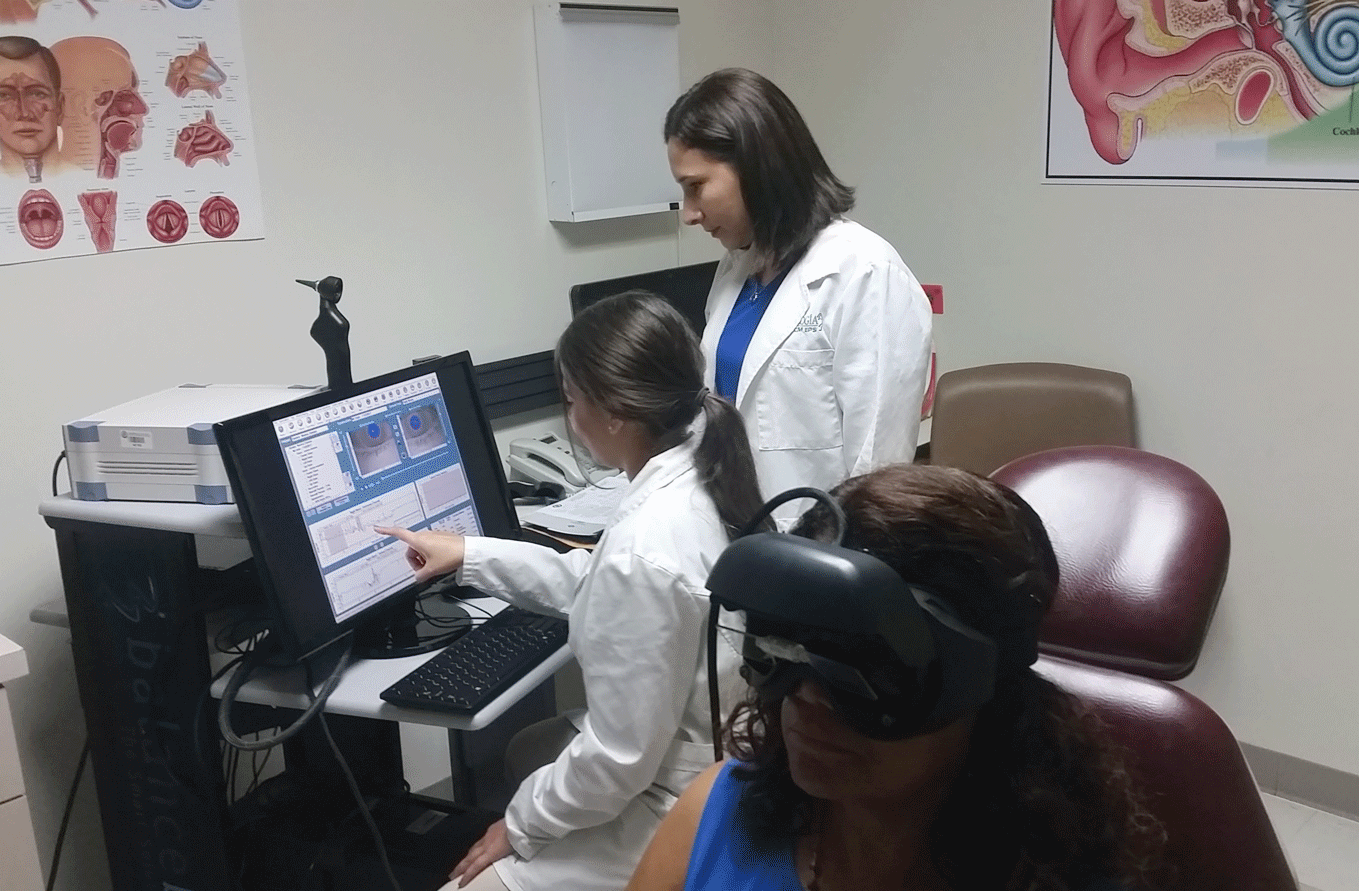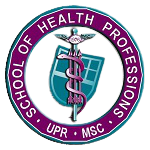The audiologist is an autonomous professional who identifies, evaluate, diagnose, and manages hearing loss and balance disorders. In addition the audiologist:
- Provides audiologic habilitation for infants/children and audiologic rehabilitation for adults.

- Selects, prescribes, and programs hearing aids and other amplifications systems and assistive communication devices.
- Prevents hearing loss through education to consumers, selection, and fitting of hearing protectors and counseling regarding the effects of noise on the auditory system.
- Participates in research in the areas of prevention, identification, and treatment of hearing loss, tinnitus, and disorders of the balance system.
Employment Setting
Audiologists are qualified to work in private practice, hospitals, and government agencies such as Department of Health, Education and Family Services. Other employment opportunities are available in federal programs, private institutions, and universities.
Academic Description of the Program
The Doctor in Audiology (Au.D.) is a professional entry-level degree. The Program is a four-year, full-time, residential post-baccalaureate program which includes academic, research and clinical experiences. The academic, research and clinical experiences are guided toward the acquisition of critical knowledge and skills in four areas: foundation of practice, prevention and identification, evaluation and treatment of hearing, and balance disorders. The curriculum also reflects the scientific knowledge, skills, and the use of technology that characterizes the current scope of practice in Audiology. The Program requires the approval of 132 semester credit hours of post-baccalaureate study, and a practicum experience which is equivalent to a minimum of 12 months of full-time, supervised clinical experience. Students must attend the Audiology Program on a full-time basis and have a maximum of 7 years to complete the degree requirements, after initial registration as a first-year student.
Admission Requirements
- Possess a Baccalaureate degree or its equivalent from an accredited university.
- Possess a General and Specific Grade Point Average (GPA) of at least 3.00. The specific grade point average refers to the 24 credits which are pre-requisites for admission into the Audiology Program.
- Official report of score obtained in the Graduate Records Examination (GRE) General Test. There is no minimum exam score required to apply. The exam must be taken within five years of the application date.
- Candidates must be proficient in written and spoken English and Spanish. The admissions process will include an interview by the Faculty, which may include assessment of verbal and written skills in both, English and Spanish.
- Completion of pre-requisite courses. Candidates must complete a minimum of 24 credits in the areas listed below. Courses must be approved with a grade of C or better. At the application due date, the candidate must have approved at least 6 of the 8 pre-requisite courses. He/she must complete the remaining course(s) by May of the application year. Pre-requisite courses taken during the summer of the application year will not be considered.
Complete 24 credits on the following areas or their equivalent:
Pre-requisite Courses
| Course / Equivalent area | Credits |
|---|---|
| General Physics | 3 |
| Statistics | 3 |
| Human Development throughout lifespan | 3 |
| General Biology | 3 |
| Pre-Calculus | 3 |
| General concepts on individuals with special needs | 3 |
| Psychology | 3 |
| Social Sciences | 3 |
| TOTAL | 24 |
Convalidation Tables for Pre-requisite Courses
Universidad de Puerto Rico
Universidad Central de Bayamón
Universidad Interamericana
Pontificia Universidad Católica
Sistema Ana G. Méndez
Universidad Carlos Albizu
Caribbean University
If your university or course is not listed in the convalidation tables, you can submit an electronic copy of the course syllabus to the Audiology Program Academic Coordinator for consideration.
Required Documents
- Completed online admission application (Payment Required).
- Official admission exam score report.
-
One official transcript from each university that the candidate has attended. Candidates that transferred from one institution to another, those that took courses with special permits at another institution, or students that took professional development courses outside of their institution must submit official transcripts from each one of the institutions in which they enrolled. Candidates that have not completed their undergraduate degree at the time of application must request their transcripts after the January academic session has begun. Requesting the transcripts at this time ensures that the first semester grades are included in the transcript and that courses enrolled during the second semester are registered in the transcript. Transcripts can be sent electronically or via postal mail.Electronic transcripts are preferred. The Registrar’s Office of the institution can email transcripts to the Central Admission’s Office at the following address: documentosadmisiones.rcm@upr.eduIf electronic transcripts are not available at the candidate’s institution, they can be sent via postal mail to:Oficina Central de Admisiones (Audiología)U.P.R., Recinto de Ciencias MédicasPO Box 365067San Juan, PR 00936-5067
Deadline for admission application and payment: February 15ᵗʰ of the application year.
Deadline to submit transcripts and exam scores: March 1st of the application year.
For questions or information regarding admission requirements to the Au. D. program, please contact Dr. Mitzarie Carlo at mitzarie.carlo@upr.edu.
Frequently Asked Admission Questions
Q: How many students are admitted to the Audiology Program each year?
A: The Program admits five students for each academic year.
Q: What is the tuition cost for the Audiology Program?
A: The cost per credit for the Audiology Program is $290. Additionally, there are other associated fees that may be charged each semester, such as: technology ($50), maintenance ($100), and laboratory ($100) fees.
Q: I qualify or have been granted tuition exemption. Can I use that exemption towards the Au.D.?
A: Unfortunately no. Our Program does not accept tuition exemptions.
Q: What does the class schedule typically look like? Are there any night classes?
A: The Au.D. class schedule varies each semester and is different for every year of the Program. Students should count on attending academic and clinical responsibilities Mondays through Fridays from 8:00 am to 6:00 pm. First and second year students usually have at least one morning or afternoon off during the week to catch up with academic work. First-year students have theoretical and laboratory courses on a full-time basis and will be assigned to complete at least 25 clinical observation hours during the year. Second and third-year students will be assigned to clinical rotations (mostly in the mornings) and will have theoretical and laboratory coures in the afternoons. Fourth-year students do not take theoretical courses. They attend their clinical site on a full-time basis as part of their clinical externship and according to the site’s work schedule.
Q: Can I keep my current job while attending the Au.D. Program?
A: Students must consider that this is a doctoral-level program that requires a greater time investment than a typical undergraduate program. In our experience, students have great difficulty maintaining a part-time job while enrolled in the Program.
Q: Does the Medical Sciences Campus provide work-study experiences for students who would like to earn an income while enrolled?
A: Yes. Our students qualify for the work-study Program and in fact, some of our students take part of this opportunity. However, the tuition exemption offered by the work-study program does not apply.
Q: What kind of financial aid is available for Au.D. students?
A: For up-to-date information regarding available financial aid please visit this link to the Financial Aid Office.
Student Outcome Data
Completion Rates
|
Academic Year |
Number of students that completed the program within 4 years | Number of students that completed the program in more than 4 years | Number of students that did not complete the program |
Percentage of students that completed the program on time |
| 2024-2025 | 5 | 1 | 0 | 83% |
| 2023-2024 | 4 | 1 | 0 | 80% |
| 2022-2023 | 3 | 0 | 0 | 100% |
|
Three-year average: 86% |
||||
PRAXIS Pass Rates
|
Academic Year |
Number of graduates that took the PRAXIS exam | Number of students that passed | Percent of students that passed the PRAXIS |
|
2024-2025 |
6 | 5 | 83% |
| 2023-2024 | 4 | 4 |
100% |
| 2022-2023 | 3 | 3 |
100% |
|
Three-year average: 92.31% |
|||
Graduation Requirements
- Complete 132 semester credits hours with a grade point average of 3.00 or higher.
- Complete a research project.
- Demonstrate appropriate professional behavior.
- Approve the comprehensive examination.
- Approve the Clinical Competence Examination.
- Complete a minimum of one year in a full-time clinical practice.
Licensure
In order to practice the profession of Audiology in Puerto Rico it is necessary to obtain a license through the Puerto Rico Department of Health Examining Board for Speech-Language Pathologists, Speech Therapists, and Audiologists. The license requirements are to hold a Masters or Doctoral degree in Audiology and to approve one of the following exams: Audiology graduates may choose to take the P.R. Examining Board local licensing exam or the Praxis Series national exam in Audiology.
Program Accreditation
The Doctor of Audiology (Au.D.) residential education program in audiology at the Medical Sciences Campus of the University of Puerto Rico is accredited by the Council on Academic Accreditation in Audiology and Speech-Language Pathology of the American Speech-Language-Hearing Association, 2200 Research Boulevard, #310, Rockville, MD 20850, 800-498-2071 or 301-296-5700.
The current accreditation period runs from July 1, 2025 through June 30, 2033.
Student Resources
Student’s Affairs – School of Health Professions
Audiology Program Reference Documents
Click here to download the Program’s information sheet
U.P.R-MSC Audiology Program’s Strategic Plan
Audiology Program Promotional Video
Audiology Intramural Practice
Click here for information about our clinical services
Professional Audiology Sites
www.audiology.org
www.audiologist.org
www.asha.org
https://www.asha.org/students/audiology/
Faculty
Dra. Soami Santiago de Snyder, CCC-A, FAAA Program Director
Mitzarie Carlo, Au.D, Ph.D., M.Sc., CCC-A Academic Coordinator
Wanda Lugo, Au.D., CCC-A, ABA, F-AAA, Clinical Coordinator
Marisol Vincenty, Ph.D., CCC-A, FAAA Research Coordinator
Grace A. Owen, Sc.D, CCC-A, FAAA
Adjunct Faculty
Nicolas Linares Orama, PhD, CCC-SLP
Myriam J. Ortiz Torres, PhD, CCC-SLP
Keyla Ramos-Pratts, Ph.D.
Lourdes Soto de Laurido, Ed.D., MPHE
Rafael García Berdecia, MPH
Contact Person
Audiology Program Office:
(787) 758-2525, ext. 4406
Dra. Mitzarie A. Carlo
Academic Coordinator
e-mail: mitzarie.carlo@upr.edu
Phone Number: (787) 758-2525, ext. 3552
Mailing Address:
Programa Doctoral en Audiología
Oficina #630
Escuela de Profesiones de la Salud
Universidad de Puerto Rico
PO Box 365067
San Juan, PR 00936-5067
